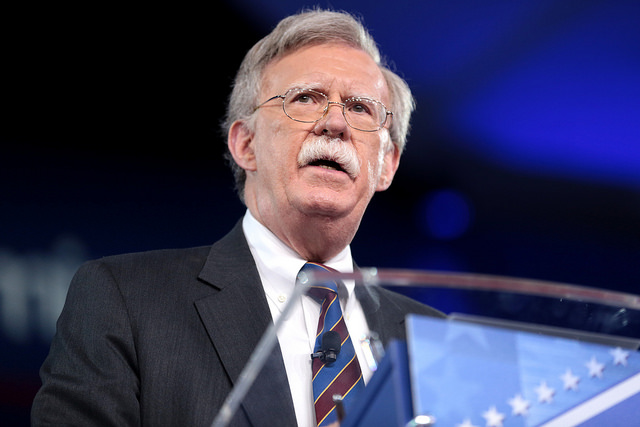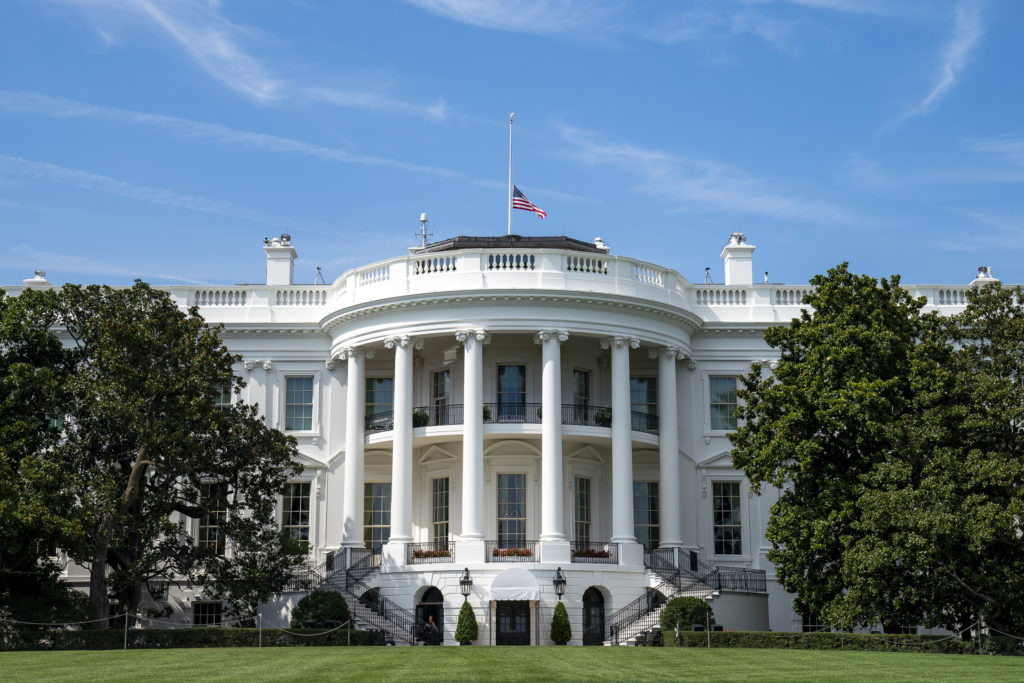The John Bolton I Knew
Most of the commentary about John Bolton's appointment as national security adviser has focused on his extreme policy views, especially with regard to military strikes against North Korea and Iran. I want instead to offer here a few firsthand thoughts about his formidable skills—which are what make him so dangerous. The Trump White House is something of a clown show, but Bolton is no clown.

Published by The Lawfare Institute
in Cooperation With

Most of the commentary about John Bolton's appointment as national security adviser has focused on his extreme policy views, especially with regard to military strikes against North Korea and Iran. I want instead to offer here a few firsthand thoughts about his formidable skills—which are what make him so dangerous. The Trump White House is something of a clown show, but Bolton is no clown. Rather than just adding a Fox-newsy ideologue who shifts the balance of the administration team’s view further toward the president’s most hawkish outlook, Trump has added someone who can actually help him make that outlook into reality.
Amb. Bolton may not remember me, but I certainly remember him. In the summer of 2001, I joined George W. Bush's National Security Council staff, serving first in the West Wing as the Executive Assistant to National Security Advisor Condoleezza Rice and later as a National Security Council director coordinating, among many other issues, U.S. policy toward the International Criminal Court (an issue on which Bolton dominated at the time, but later lost influence). I later served the Bush administration in the Defense and State Departments, where I watched Bolton often run circles around rivals or chew them to pieces.
Yes, Bolton is militantly aggressive about wielding American military and economic power. But what I saw in him also was an operator who was relentlessly effective in implementing—or stymying—policy, at least in the short term.
Here are three things to know about what Bolton brings to this job.
First, he's a masterful bureaucratic tactician. Unlike his predecessors, Michael Flynn and H.R. McMaster, Bolton is a very experienced and adept creature of Washington institutions. Similar to former Vice President Dick Cheney, he knows the levers and knobs of the vast national security and foreign policy machinery: how they work, who works them, and how to exert control over them. He’ll work to put loyalists in key vantage points and marginalize those he distrusts (both of which I watched him do as undersecretary of state for arms control and international security). In particular, he has the already-weakened State Department, now lacking a secretary, especially mapped out for further hostile takeover.
Second, he’s a crafty negotiator. I’ve never believed that Donald Trump is the artful dealmaker he pretends to be; he has a few plays that he just runs again and again. But Bolton is truly clever. He picks his battles much more carefully than Trump does. As U.S. ambassador to the U.N., Bolton is mostly remembered for his hostility to the institution and for his coarse bluntness. Yet in that multilateral diplomatic maze, he often delivered for the administration, including on North Korea at the U.N. Security Council.
Third, he's thorough and methodical. Most senior policymakers simply cannot keep up with the details across so many issues. I watched Bolton dominate ICC policy meetings with mastery of the minute particulars, preserving a strategy that was more hardline—and unnecessarily costly—than I think even the president would have wanted (though I’d note that Bolton’s early victories on this issue didn’t last into Bush’s second term). Expect the same diligent readiness from him on issues like Iran and North Korea, but with the added advantage that he'll face less pushback than he might otherwise because of the fact that so many senior diplomatic posts remain unfilled. His ability to be meticulous and bombastic will probably serve him very well in this White House.
It’s anyone's guess whether the relationship between Bolton and President Trump will last. The president is, of course, a wild card. My best guess is that Bolton will be effective at managing his relationship with Trump and will be far more influential than Flynn or McMaster ever could have been. But, maybe the president will quickly turn on him as well, or just decide he hates mustaches. What’s more, John Bolton doesn’t suffer fools gladly—and that's bad news for Trump.
For now, the key takeaway is that Bolton brings to the president's national security agenda a competence that this White House has lacked. I generally agree with Benjamin Wittes that some of the president's worst instincts have often been tempered by sheer ineptitude. What makes Bolton dangerous is his capacity to implement those instincts effectively.





